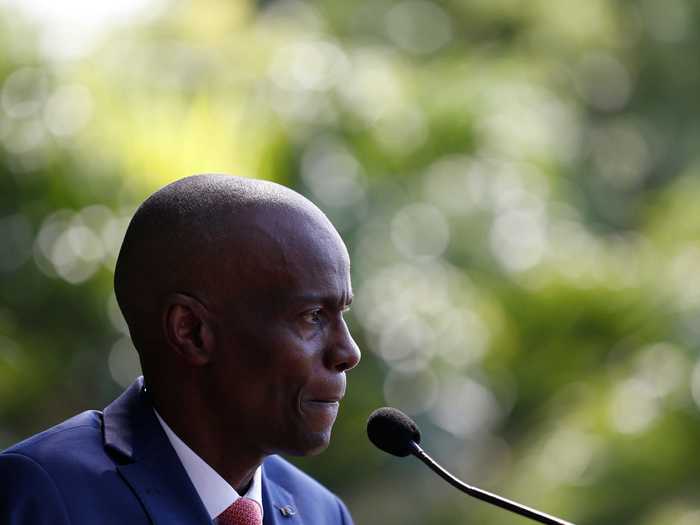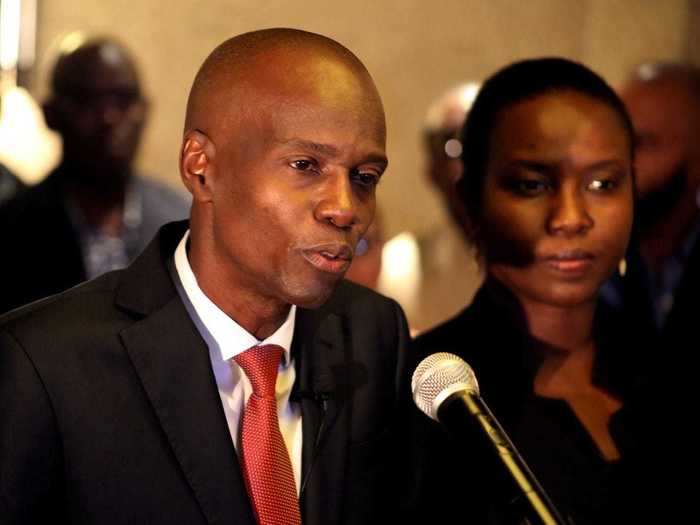The news of the assassination creates more uncertainty in Haiti's turbulent political sphere
President Jovenel Moïse speaks during a press conference at the National Palace in Port-au-Prince, Haiti, Tuesday, Oct. 15, 2019.
Associated Press
Before his assassination Wednesday, Moïse had been ruling in the country for over a year by decree after the country failed to hold an election. An election was expected to occur later this year.
At the time of his death, Haiti was experiencing a surge in gang-related crimes, anti-government protests, and COVID-19 infections, the AP reported.
The streets were mostly quiet Wednesday morning, though some ransacked businesses were reported in one area of Port-au-Prince, the Haitian capital city, according to the AP.
Haitian President Jovenel Moïse was assassinated in his home early Wednesday, the nation's interim prime minister announced
Jovenel Moïse and his wife Martine Moïse in Port-au-Prince, Haiti, on November 28, 2016, after he won the country's 2016 presidential election.
Jeanty Junior Augustin/Reuters
Claude Joseph, the interim prime minister of Haiti, announced Wednesday that Haitian President Jovenel Moïse was shot and killed early Wednesday by a group of armed assailants in his home.
"A group of unidentified individuals, some of them speaking Spanish, attacked the private residence of the president of the republic and thus fatally wounded the head of state," said Claude Joseph, the interim prime minister of Haiti.
Haitian first lady Martine Moise was also injured in the attack and was receiving medical treatment.
Details of who carried out the assassination were not immediately known.
Read Full Story


